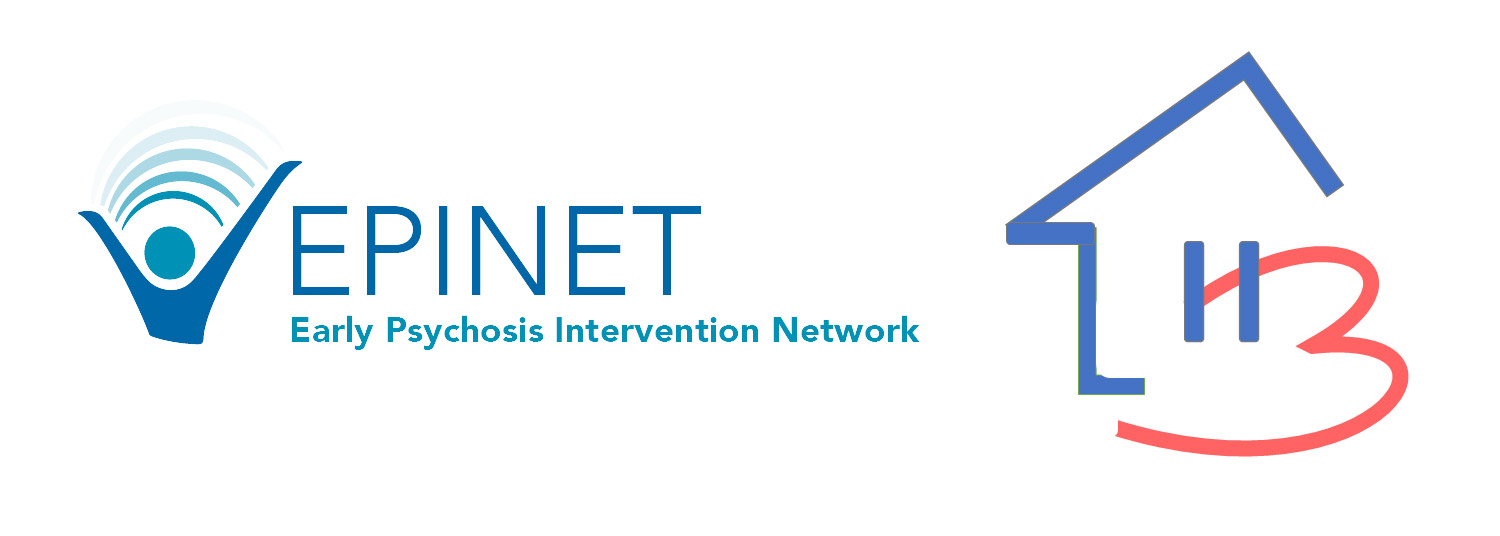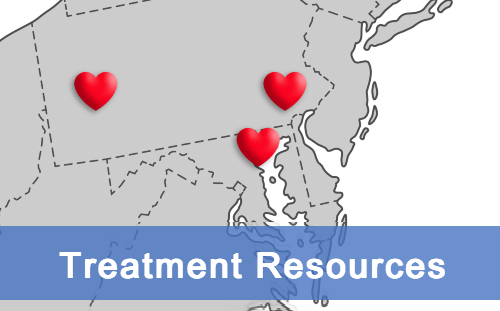General Resources
- National Alliance on Mental Illness (NAMI)
- National Institute of Mental Health (NIMH)
- HeadsUp
- Find a Treatment Center
(nationwide listing)
What is psychosis?
Understanding Psychosis
Psychosis is a symptom of several possible psychiatric conditions. This includes schizophrenia, bipolar disorder, depression, and more.
Psychosis describes conditions that affect the mind. During a period of psychosis, a person’s thoughts and perceptions become distorted. The individual may find it difficult to understand what is real and what is not real.
What is meant by early psychosis?
Early psychosis is also called first-episode psychosis (FEP). This refers to the time when a person first shows signs of beginning to lose contact with reality.
What are common symptoms of psychosis?
The National Alliance on Mental Illness (NAMI) lists some common symptoms of psychosis as:
- Hearing, seeing, tasting or believing things that others don’t
- Persistent, unusual thoughts or beliefs that can’t be set aside regardless of what others believe
- Strong and inappropriate emotions or no emotions at all
- Withdrawing from family or friends
- A sudden decline in self-care
- Trouble thinking clearly or concentrating
What are some common misconceptions about individuals experiencing psychosis?
There are many misconceptions about people who experience psychosis. Some people believe that a person experiencing psychosis will not be able to find or hold a job, live by themselves, complete school programs, or achieve other personal goals. Yet, this is not always the case. People with psychosis can recover, hold jobs, complete schooling, and lead fulfilling lives.
The path to recovery looks different for everyone. An individual's team will work with them on their individual path. Beginning treatment early is key to recovery.
What are the benefits of seeking mental health treatment?
Early evaluation of symptoms is critical in the treatment and recovery of psychosis. Early intervention in psychosis, especially during the first episode, leads to the best outcomes.
Research shows that a treatment approach called coordinated specialty care (CSC) is effective. CSC involves a team of health professionals and people with experience in unique fields. This team works with a person to create a personal treatment plan. They base this plan on the individual’s life goals. This includes involving family members as much as possible.
What is a Coordinated Specialty Care (CSC) clinic, and how does it differ from other clinics?
Coordinated specialty care (CSC) is a recovery-oriented treatment program model. The CSC team works with people with early psychosis and their families. The main features of CSC programs include:
- Promoting shared decision making
- A team of specialists who work with individuals to create personalized treatment plans
Services offered in CSC programs include:
- Psychotherapy
- Medication management
- Family education and support
- Case management
- Employment and education support
CSC programs are becoming more common in the early psychosis treatment space as the gold standard of care. People experiencing psychosis who connect with a CSC program as soon as possible have the best outcomes.
What does treatment for psychosis look like, and what kind of treatment and medications are available for those experiencing psychosis?
Treatment for psychosis is often a combination of:
- Therapy
- Medication management
- Social and peer support
For many, these treatments are lifelong.
Several types of therapy have helped individuals learn to manage their condition. These include cognitive behavioral therapy (CBT). CBT focuses on exploring relationships among a person's thoughts, feelings and behaviors. The aims of CBT are to identify negative or false beliefs, and test or reconstruct them.
Several medication options are also available that can treat psychotic symptoms. These can depend on the diagnosis of the individual. A mental health professional will give you an initial evaluation, which can help you decide what treatment plan works best for you or your loved one.
How do I or a loved one get assessed for psychosis?
A mental health professional can offer a diagnosis and can help you with next steps.
What is the average length of treatment for psychosis?
The average length of treatment for psychosis depends on the type of program patients choose. CSC programs can see patients for up to two years, and can then move patients into less intensive care, if needed. Treatment can be lifelong.
How do I talk to friends and family about my mental health and psychosis?
There are many resources available that can help you talk with friends and family about these topics.
How can I help my friend or loved one who may be experiencing psychosis, and what support and resources are available?
While it can often feel overwhelming, there are many steps that family and friends can take to support the recovery process. It is important not to wait to seek help. The sooner someone you care about gets treatment, the better the chances are for a full recovery.
Many organizations provide support for friends and family members of individuals experiencing psychosis:
- National Alliance on Mental Illness: How to contact your local NAMI office, plus resources and support for caregivers.
- National Suicide Prevention Lifeline 1-800-273-8255
- Shared Decision-Making Information: Shared decision-making is about people and their healthcare providers working together. Its goal is to find the best treatment or care choices. Individuals learn to take part in making decisions with their healthcare providers.
- RAISE Resources for Patients and Families: Information and resources if you or someone you know is looking for treatment after a psychosis episode.
- HeadsUp Resources for Friends and Family: Useful family support resources, stressing the important role that family and friends play in a person's recovery.
How do various insurance plans cover treatment for early psychosis?
Some clinics do not bill patients for services since they are grant-funded. But, most sites bill treatment to insurance companies. Most insurances cover treatment the way they would for any other type of mental health treatment.
Insurance plans accepted by each of our sites are listed on our Treatment Resources page >
Where can I find mental health treatment services in my area for those experiencing early psychosis?
How does use of THC-containing products like marijuana affect those experiencing psychosis?
Although research is still new and limited, we have seen a connection between the use of marijuana and the onset of psychosis in those who are at-risk. People at high risk for psychosis who use marijuana may see their first symptoms at a younger age. They also tend to have a harder time in their recovery.
How do I help myself or a loved one struggling with early psychosis get educational support and services?
Coordinated specialty care (CSC) programs include a Supported Education and Employment Specialist (SEES). The SEES helps individuals map out and work towards their educational goals. Their services to students and families include:
- Exploring needed accommodations and services
- Ensuring that schools provide these accommodations and services
- Navigating Individualized Education Plans (IEPs) and 504 plans
- Applying for college disability support services and other needed supports
- Providing skills training, such as time management and organizational skills.
Find a CSC program in Maryland or Pennsylvania
How do I help myself or a loved one dealing with early psychosis find job-related help?
Coordinated Specialty Care (CSC) programs include a Supported Education and Employment Specialist (SEES). The SEES helps individuals plan and work towards employment goals. Their services include:
- Exploring career interests and preferences
- Finding local employment opportunities
- Building relationships with potential employers
- Assisting with writing resumes and completing applications
- Practicing interviewing skills
- Ensuring that employers provide needed accommodations
Find a CSC program in Maryland or Pennsylvania
What are the eligibility criteria for enrollment in Coordinated Specialty Care (CSC)?
Eligibility criteria for enrollment in CSC will vary from program to program. CSC programs accept teens or young adults within two years of their first episode of psychosis. Prior diagnosis is often a prerequisite to enrollment in a CSC, and teams will go over a person’s past medical history when admitting new patients.
Family education and support are important aspects of CSC programs. Individuals whose families are involved in treatment tend to gain the most out of CSC services. But, family involvement is not required for enrollment.
What crisis services are available for those experiencing psychosis?
If you or someone you know is in immediate danger, please call 911 or go to the nearest emergency room.
If you or someone you know is in distress or has concerns about mental health or psychosis, here are some confidential and free resources:
Crisis services listed here are available 24 hours a day, 7 days a week unless otherwise noted.
- National Suicide Prevention and Crisis Hotline: 988
Languages: English and Spanish - National Suicide Prevention Hotline: 1-800-273-TALK (8255)
- National Suicide Prevention Chat
- Crisis Text Line: Text "HOME" to 741741
- Emergency NAMI Helpline: 800-950-NAMI (6264)
Mon - Fri, 10 a.m. - 10 p.m. EST
In a crisis, text “NAMI” to 741741 - SAMHSA 24-Hour Helpline: 800-662-4357
- SAMHSA Treatment Referral Helpline: 1-877-726-4727
Mon - Fri, 8 a.m. - 8 p.m. EST - NIMH Helpline: 866-615-6464
Mon - Fri, 8:30 a.m. - 5 p.m. EST


